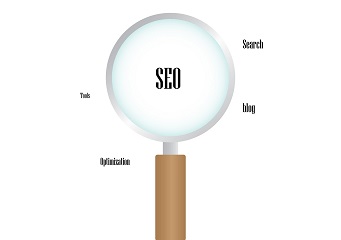As you’re probably aware, SEO is far from dead. In fact, it’s still absolutely crucial if you want to get your property discovered by your guests and drive lots of bookings online. But SEO has changed, and the tricks and cheats once touted as the quick way to climb up the search rankings have long since become obsolete. Today’s search engine optimisation is all about striking the right balance between user-focused content that is of genuine value to your audience and convincing search engine spiders that you are a credible source of this information.
So how do you find the perfect balance?
These important best practices will help you optimise content for search engines and your guests.
1. Put Yourself in Your Guests’ Shoes
Thoroughly researching your guests’ needs will help inform your keyword strategy while ensuring you create highly relevant and helpful content that pleases your audience – and Google.
If you were a guest planning your break online, what information would you be looking for? What keywords and phrases would you include in your search queries? What are your major pain points as a traveller? Most importantly, how does your property aim to address these pain points?
2. Abandon Keyword Stuffing, Right Now
If you still think filling your content with as many keywords as possible is a great way to game the search engines, it’s time to drag yourself out of the past.
In recent years, Google has released a string of algorithm updates designed to provide the best possible search experience for its users. Since content clumsily stuffed with keywords adds nothing to user experience, sites that follow such practices are at high risk of being penalised in the search results.
3. Get the Basics Right
If you want to rank highly in Google, you need to pay attention to these basic, but essential on-page SEO elements.
- Page Title: With a limit of 70 characters, your SEO page title needs to include the keyword you’re targeting as close to the beginning as possible.
- Meta Description: This needs to be kept under 160 characters. It should act as an enticing ‘teaser’ to drive users to click through to the page and should include your keyword.
- H1: The headline tag communicates to search engines what your page is about, while helping to attract readers. Stick to just one H1 per page.
- Image alt tag: Since search engines are unable to view images like we do, an image alt tag helps them interpret it. Including your targeted keyword in your description of the image is ideal, but don’t force it.
- URLs: Keep your URLs short and include your focus keyword. Your guests will see this in the SERPs and it could determine whether they click through to your resort’s website.
- Page copy: When it comes to the main body of text on your page, the best practice is to include the target keyword close to the top and repeat it a minimum of three times throughout the rest of the copy.
4. Don’t Forget to Crosslink
Linking your content to other pages on your resort’s website not only wins points with the search engines, it keeps your guests moving through your site and along the path you need them to follow to book.
5. Break Content Up into Bite-Size Pieces
The internet is saturated with content – uncountable videos, blog articles and social posts are published everyday all over the world. If you want to break through the noise and get your content read by its intended audience, it’s essential to make it easy to digest.
All it takes is a few simple formatting tricks. Break large blocks of content up into smaller paragraphs, make use of bullet points and subheadings where appropriate and make key points stand out in bold or italics.
Succeeding at SEO in today’s search climate is all about being the ‘best answer’ to your guests’ search queries. It means providing the most relevant and useful possible information to your specific audience. Optimising your content to ensure it meets Google’s current SEO standards will make sure your content gets in front of that audience.
How do you balance creating content that is optimised for search but also great for your guests? Let us know in the comments below!
RELATED PAGES AND BLOG POSTS:
– 3 Ways To Excel at Content Marketing in 2016
– How To Get Your Resort’s Content Seen By More People
– Want to Boost Your Blog’s Power to Convert? Here are 6 Tests to Try

